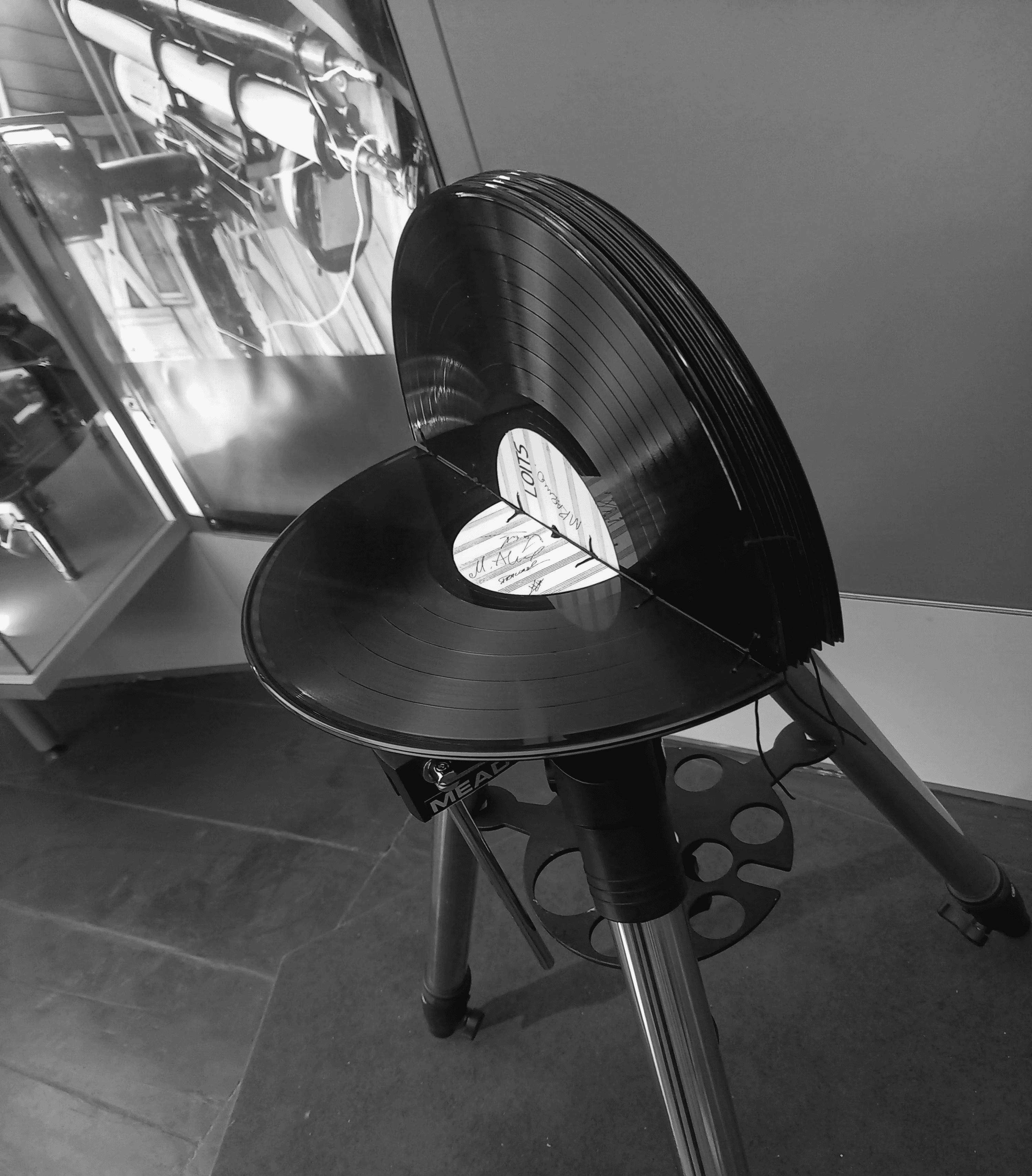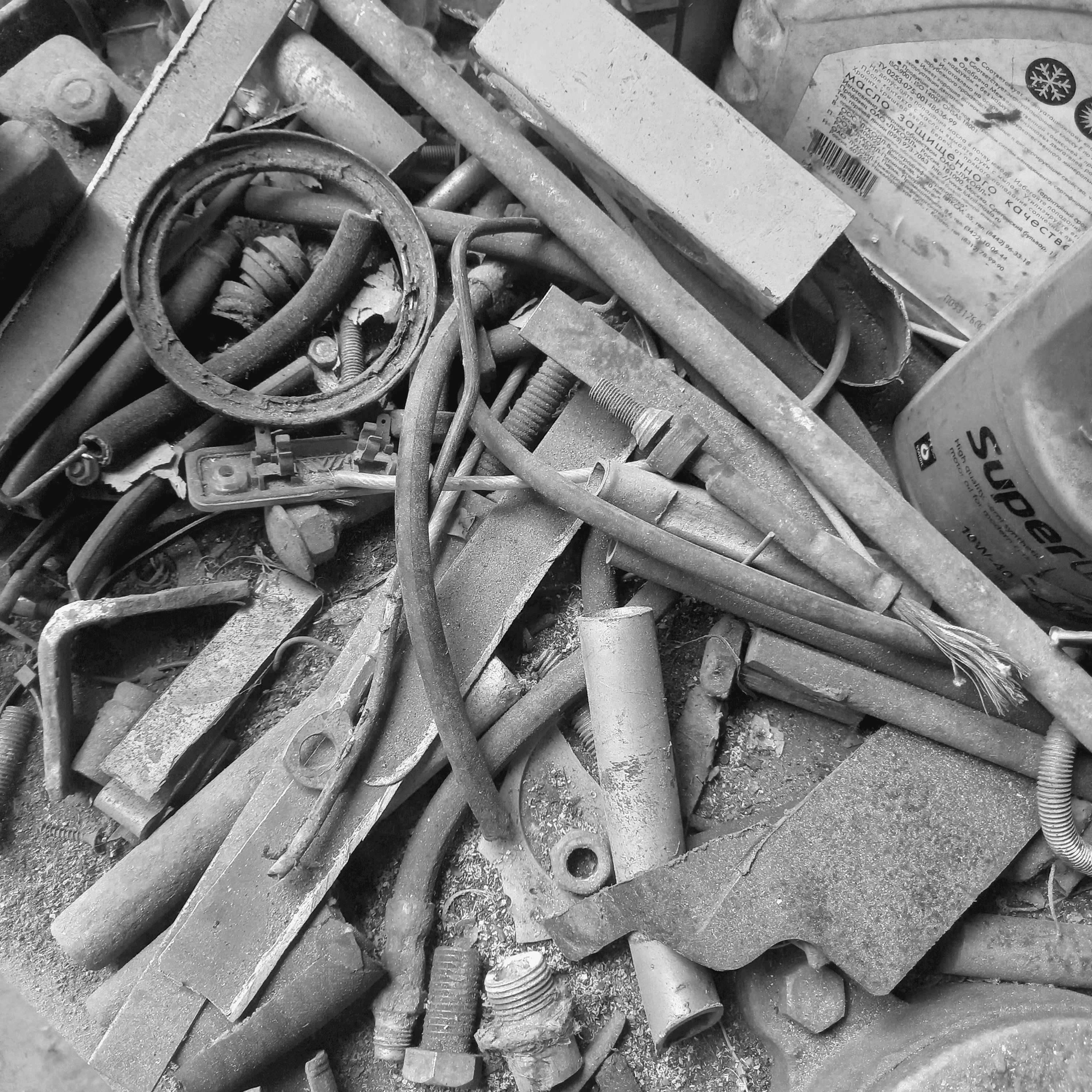June 21, 2025
Andrus Laansalu
how to look for a needle never lost
(blog post also available in estonian.)
in contemporary audio design only few things can still elicit surprise in people. it's been common knowledge for the past 25 years that audio design in action-films and action-games is largely regular supermarket stuff (knife, cleaver, watermelon and the turnip). any reader of "computer music" was much better versed in the finer details of electronic music than the audio designer who dedicated half their life to interpreting video game narratives (skipped "computer music" back then and now it's gone). next-door-jazz-musician's prowess with the fretless bass is such – even in their sleep – that the audio designer's only answer is to grab a busted double bass and on its single cord carve out an ambient, depressive bourdon – thus entirely avoiding the question of virtuosity. and if you eventually do want to compose something of your own then old johann sebastian (right, bach) wrote much better music than you (ok, he wrote better music than absolutely anyone so maybe don't agonize over the comparison).
we can hereby conclude that there's no real point in basing video game's audio design on technical skills. there will always be about a million people who've trained their entire life for the purpose of making the audio designer experience suffering and defeat. one way to escape this admittedly hopeless situation is to develop some sort of a radical concept. again, naturally every artistic individual has in their disposal at all times about 10 concepts for searching the haystack for a needle that was never dropped there. however, coming up with a concept and executing the concept are different things entirely. second approach makes finding the nonexistent needle conceivable.
to be clear, i'm talking about improvising. in this moment i'm far from telling you what the audio concept for summer eternal's new game is going to be. i do have it. but once it's done i will listen to it and tell myself – this is nothing like what i initially envisioned. and it's not because we can't stay within the established framework. we can. but we won't. my experience as an audio designer tells me (like zhuangzi told wittgenstein) that once you start the climb forget about the ladder. forget it till you can no longer even recall the word that used to stand for it. this means first coming up with the conceptual foundation for the audio design, then deliberately forgetting it. trust that the flow of the process will carry what is about to unfold, and know with certainty that it will not take you to the intended destination. learn from the masters – improvise like dizzy gillespie. when a dancer fell on and bent the bell of dizzy's trumpet, dizzy picked it up and kept playing. and not just for this concert but for a long time to come. it became his trademark.
this means that although i know exactly the direction our entire audio design starts moving in, i don't really know the direction our audio design starts moving in. something i can promise with certainty is that i will be rebuilding the concept all of the time. i can illustrate this with a zen-story (without any saintly appearances, it's just a damn zen-story and anyone can make one up). there once were two zen-disciples. by chance they ran into each other and one asked the other: where are you heading? where the wind blows, the second disciple replied. the first disciple didn't know how to respond and went to ask the teacher what he should have said. next time ask what will you do when there is no wind, suggested the teacher. as stories go, the two disciples soon ran into each other again. where are you heading, the first disciple again asked. to the market to get vegetables, the second disciple replied, irreversibly collapsing the entire dialogue.
will this system that i in all honesty did not yet talk about at all, result in something actually listenable? i can say this: that's how i made the audio-environment for disco elysium, so there is some hope.
Andrus Laansalu






